In medieval battles, suspicions often played a pivotal role in shaping outcomes and alliances. Lords and commanders frequently doubted the loyalty of vassals, fearing betrayal or desertion mid-battle. Spies and informants were common, fueling paranoia and strategic deception. Accusations of treachery could lead to preemptive strikes or the execution of allies. Misinformation spread by enemy forces further eroded trust among ranks. The fog of war, combined with poor communication and shifting loyalties, made suspicion a constant undercurrent in medieval warfare—undermining unity and intensifying the brutal, chaotic nature of conflict during this era.
Medieval battles were often preceded by rituals that reflected the deeply religious and symbolic nature of the time. Common rituals included:
-
Prayers and blessings: Soldiers and commanders sought divine favour, often receiving blessings from priests or bishops before combat.
-
Mass: Attending a religious service, especially among Christian knights, was customary to confess sins and seek protection.
-
Holy relics: Leaders might carry or touch sacred relics for luck and courage.
-
Oaths and vows: Warriors sometimes made vows to saints or swore oaths of loyalty and valour.
-
Battle speeches: Commanders gave stirring speeches to inspire courage and unity.
These rituals helped unify troops, boost morale, and frame the battle as a righteous cause.
Prince Hal is displayed in the first image, and King in the fifth image, dressing for battle. (A big thank you to Conar for explaining so much).
The English Free Company EFC of reenactors representing the late medieval and the War of the Roses periods of history. They have Archers, Gunners, Men at Arms and camp followers, all providing a glimpse into the medieval life and war. If you would like to try your hand at reenactment or would like to book them, email: englishfreecompanye@yahoo.co.co.uk

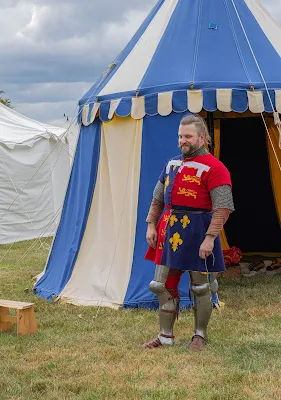
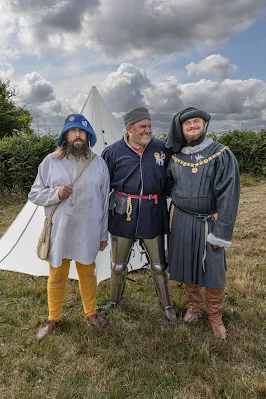


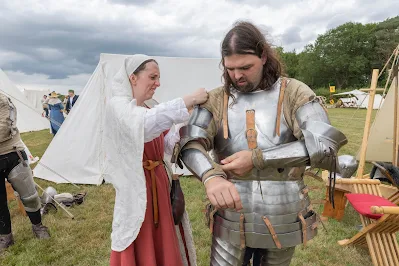
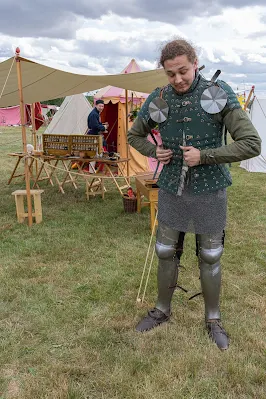



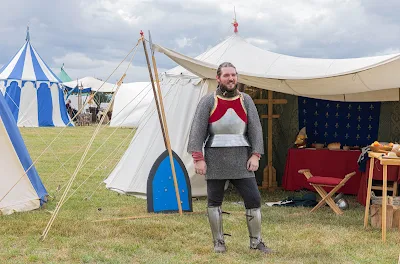





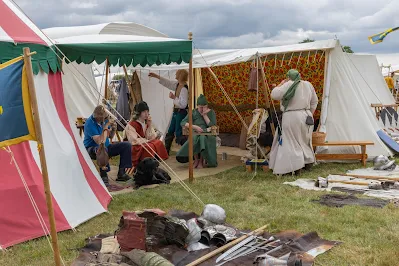


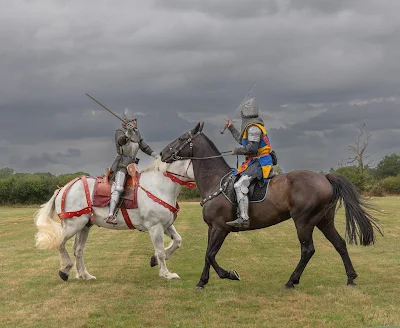


No comments:
Post a Comment